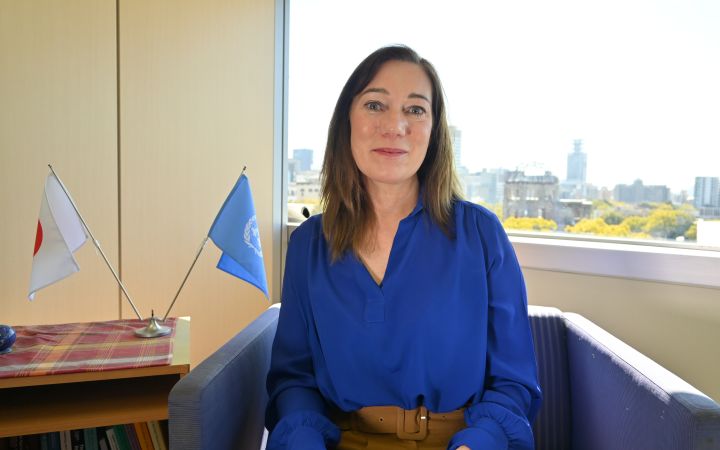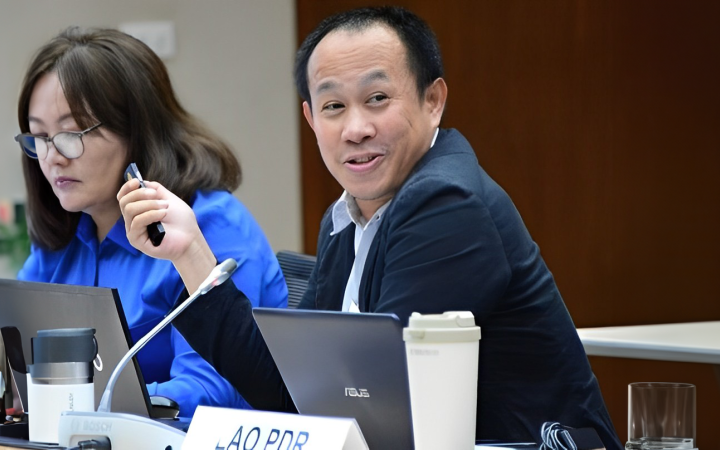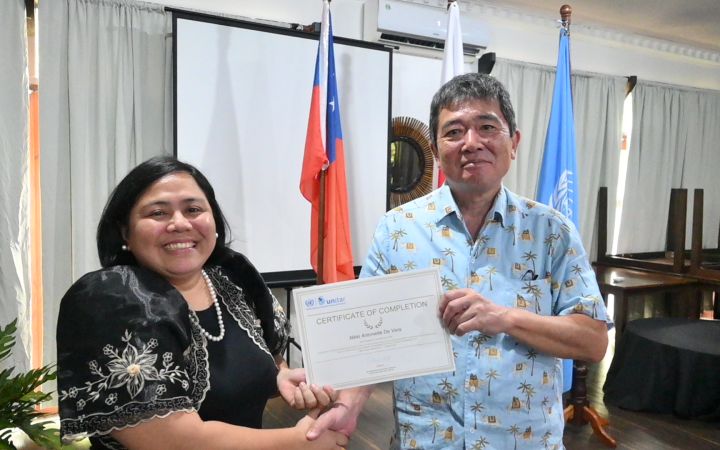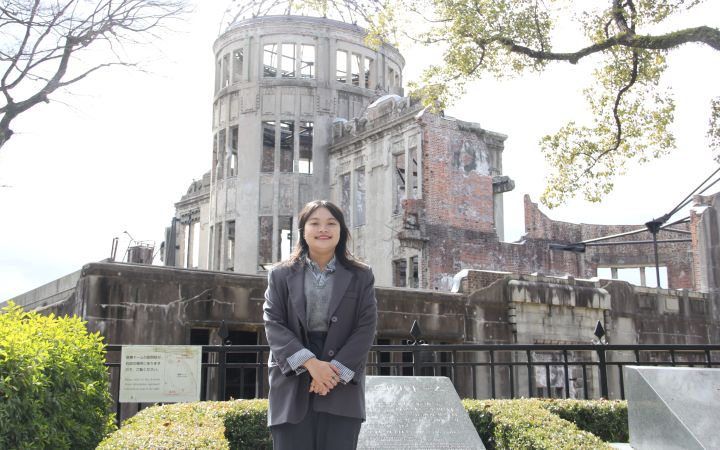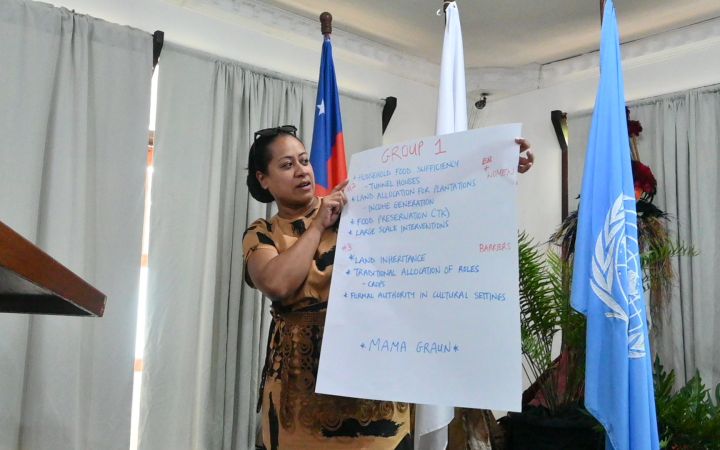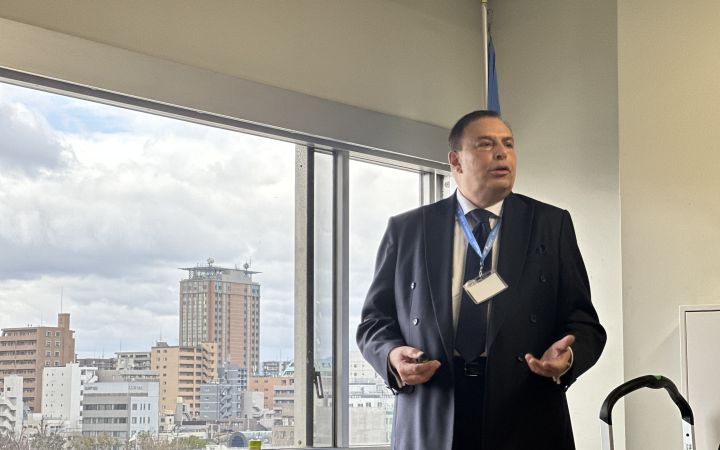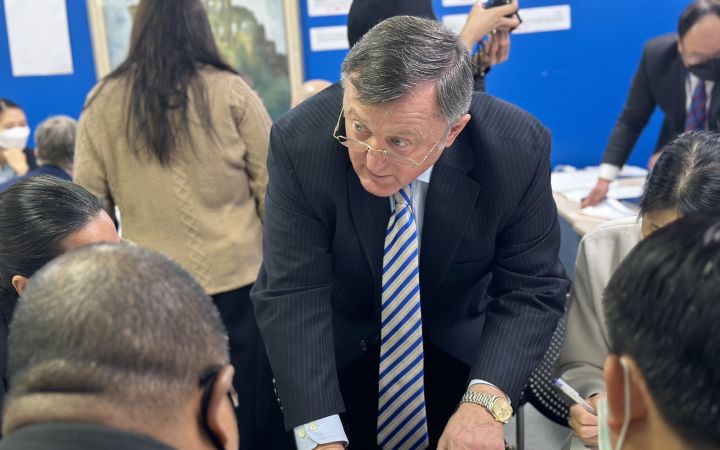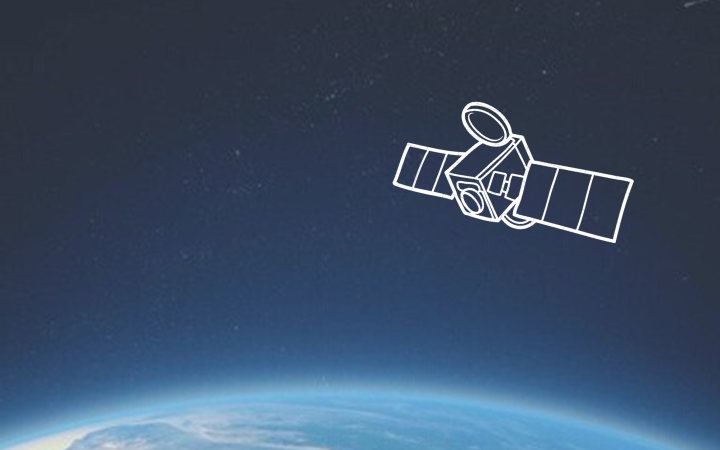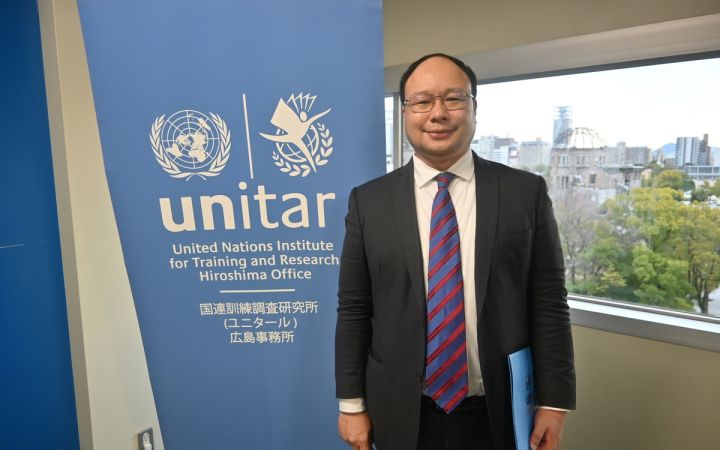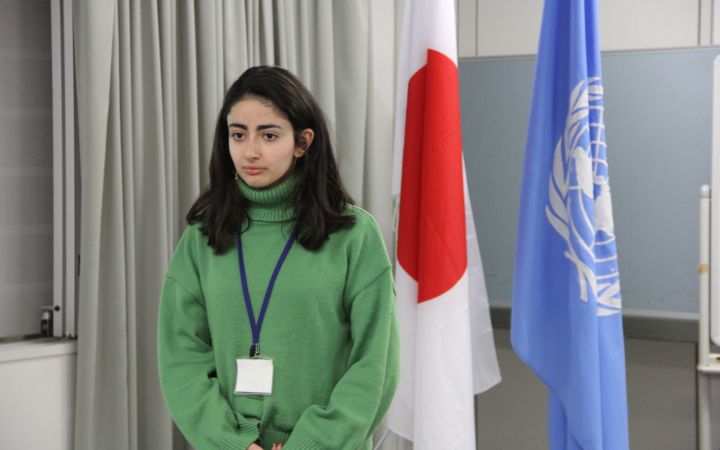Displaying 121 - 130 of 281
26 October 2023, Hiroshima, Japan - What do potential entrepreneurs in developing countries need to become future leaders? Dr. Clare Gately, professor of entrepreneurship and innovation and UNITAR resource person, believes it’s more than technical knowledge and skills. Future entrepreneurs also need the right mindset and a strong support structure.
During the Twenty-seventh session of the Intergovernmental Consultative Committee (ICC 27) on the Regional Space Applications Programme for Sustainable Development (25 27 July, 2023) which was hosted by the United Nations Economic and Social Commission for Asia and the Pacific (UNESCAP).
28 August 2023, Hiroshima, Japan – Nikki Antonette De Vera, from the Philippines, is an alum of the UNITAR Hiroshima Women’s Leadership in Tsunami-based Disaster Risk Reduction Training Programme for World Tsunami Awareness Day. Nikki participated in this programme in Samoa which enriched her perspective, emphasizing the importance of cultural heritage in disaster resilience.
28 August 2023, Hiroshima, Japan – Lê Nguyen An Khanh is a young diplomat from Viet Nam, working at the Department of International Organisations at the Ministry of Foreign Affairs. She believes that diplomats like her have the responsibility to advocate for nuclear disarmament. But it’s not always easy to keep abreast of the intricacies of field. “We are constantly having [to] research all the issues, of which nuclear disarmament and non-proliferation is a huge part”, she says.
18 August 2023, Hiroshima, Japan – Talita Tuipolutu, a communications coordinator for the Tonga Australia Support Platform, developed a stronger passion for disaster risk reduction after experiencing the devastation caused by cyclones, earthquake and tsunami in Tonga. She joined the 2022 UNITAR Hiroshima Women’s Leadership in Tsunami-based Disaster Risk Reduction Training Programme so she could help her community better prepare for future disasters.
16 August 2023, Hiroshima, Japan - Tariq Rauf, former Head of Nuclear Verification and Security Policy Coordination at the International Atomic Energy Agency, trains diplomats from Asian countries to negotiate effectively for nuclear disarmament and non-proliferation. Since 2015, he has been a key resource person for UNITAR Hiroshima’s Nuclear Disarmament and Non-Proliferation Training Programme.
14 August, Hiroshima, Japan – Since 2016, Yuriy Kryvonos has been training diplomats through UNITAR’s Nuclear Disarmament and Non-Proliferation (NDNP) Training Programme in Hiroshima. The former Director of the Regional Centre for Peace and Disarmament Affairs in Asia and the Pacific (United Nations Office for Disarmament Affairs) with over 20 years of experience reflect on the programme and his relationship with UNITAR Hiroshima.
10 August 2023, Port Vila, Vanuatu - Vanuatu faces many threats because of climate change – the most visible of which is sea-level rise. While coastal inundation poses great risks to infrastructure, damage can be mitigated through evidence-based planning geospatial information technologies (GIT). Leveraging GIT with new and innovative technologies like drones can assist decision-makers in targeting their country’s most vulnerable sectors and communities, thereby ensuring future resilience.
29 May 2023, Hiroshima, Japan - Amid growing global worries of nuclear threats, nearly 20 diplomats and government officials from Asian countries gathered in Hiroshima from 13 to 18 February 2023, for the UNITAR nuclear disarmament and non-proliferation (NDNP) training programme. Among them was Mohd Ishrin Bin Mohd Ishak, a Malaysian diplomat. He joined the programme to update his understanding of the United Nations disarmament and non-proliferation bodies and the risks associated with nuclear weapons.
29 May 2023, Hiroshima, Japan - Nineteen-year-old Céline Arslane has a dream: to become a human rights activist and provide psychological support to refugees and war survivors. She wants to help people as others helped her.


